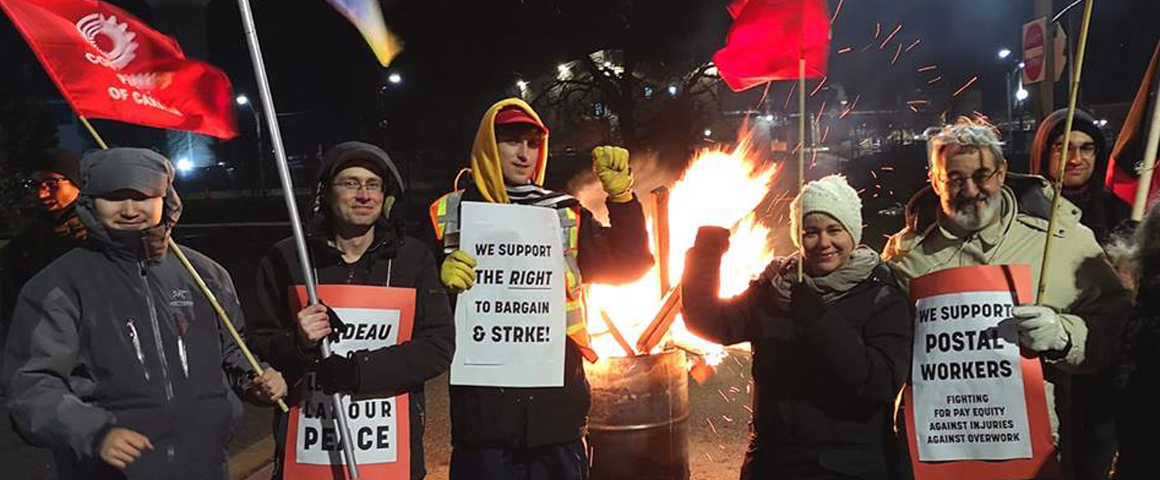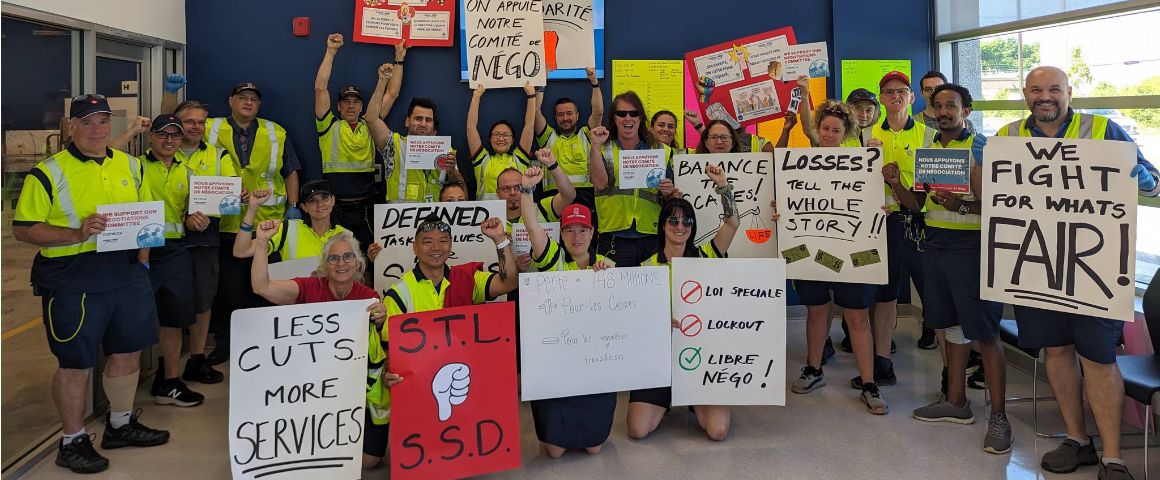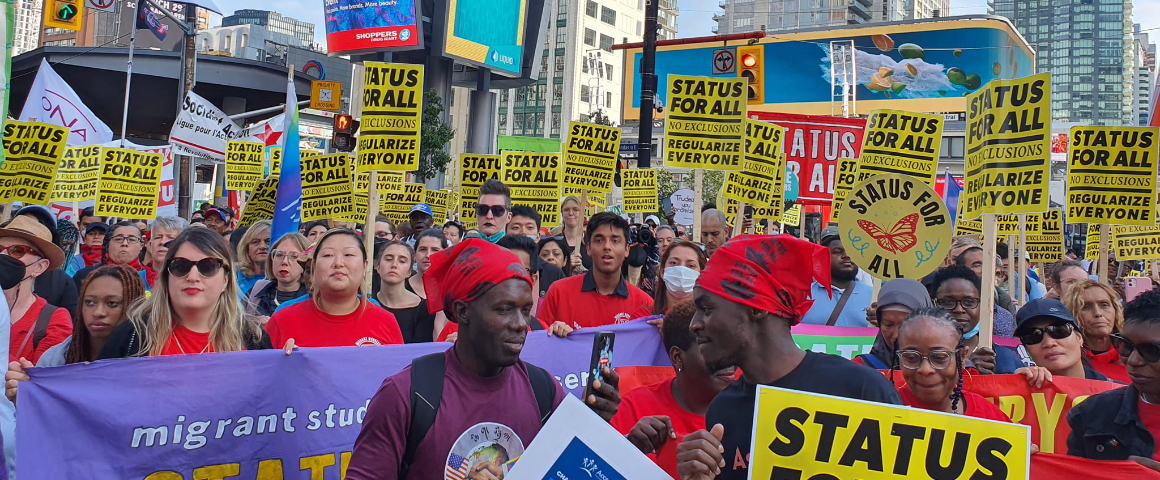State interference in collective bargaining, on the side of the employer, is not a new phenomenon. Across Canada, governments at all levels work together to prevent and crush workers’ power. From police intervention to special legislation, workers’ history is punctuated by episodes of direct repression.
If there is one profession that has regularly been in conflict with the federal government, it is postal workers. Since the 1960s, they have fought for the right to organize, the right to decent working conditions and stable employment. It is thanks to the Canadian Union of Postal Workers (CUPW) and their strike in 1981 that workers across Canada now have paid maternity leave.
Union rights, hard-won from struggles from the 1950s to the 1970s, and their codification in law has not prevented government interference. One of the tenets of the neoliberal offensive since the 1980s has been the neutralization of trade union organizations. Thus began an era of special laws, of which we are still prisoners. The most recent labour dispute at Canada Post, the 2018 strike, bears witness to this.
That year, the postal service had just emerged from the outright repression of the Harper era. The lockout and use of illegal back-to-work legislation in 2011 worsened working conditions at Canada Post. With Harper’s defeat in 2015, the 2018 strike was CUPW’s opportunity to make gains – a strike a few weeks before Christmas has the potential to bring Canada Post to the negotiating table.
The union called a rotating strike on October 22. The tactic was simple – temporary interruptions in the postal service, which hardly affect the population but very quickly become an organizational headache for management. The Montreal region, for instance, only experienced one day of picketing and service interruption during the strike. The disruptions were successful, but the strike ended abruptly on November 26 when the Trudeau government passed special back-to-work legislation.
In doing so, the government gave in to pressure from Amazon, Ebay and others to secure delivery of online shopping for the holidays. Obviously, this decision favoured management at Canada Post, which had refused to negotiate throughout the dispute. The legislation put an end to all negotiations and forced a return to work. It decreed that the 2018-2022 working conditions of postal employees would be decided by an arbitrator.
In June 2020, the arbitrator finally announced his decision. Unsurprisingly, the result is a series of concessions to the employer; besides very modest wage increases, there is nothing concrete for postal workers. Several of the most important union demands, which concern health and safety, are not even addressed in the decision.
The arbitration is not a negotiated agreement. It is the result of crushing the legitimate freedom of association and collective bargaining. It is the product of an unequal war between thousands of workers and a state in the service of the bosses. Employees everywhere face the same ultimatum: negotiate lower wages and weaker working conditions or face special legislation. The Liberal government is literally using the judiciary to attack labour rights and working conditions.
This situation cannot continue. It is vital to build and defend workers’ power, but this is a fight in which we cannot rely on the anti-union media or on those who will betray us once in power. Deepening the struggle is intimately linked to trade union engagement and commitment to mobilization, and to building an alliance of progressives. Within the unions themselves, progressives must unite. Calling for an end to government interference in collective bargaining is a fair demand – let us defend the right to negotiate.
Solidarity with postal workers!
[hr gap=”10″]
Support socialist media!
If you found this article useful, please consider donating to People’s Voice.
We are 100% reader-supported, with no corporate or government funding.




